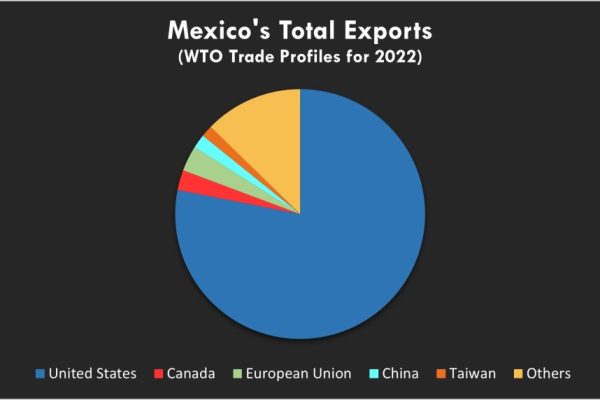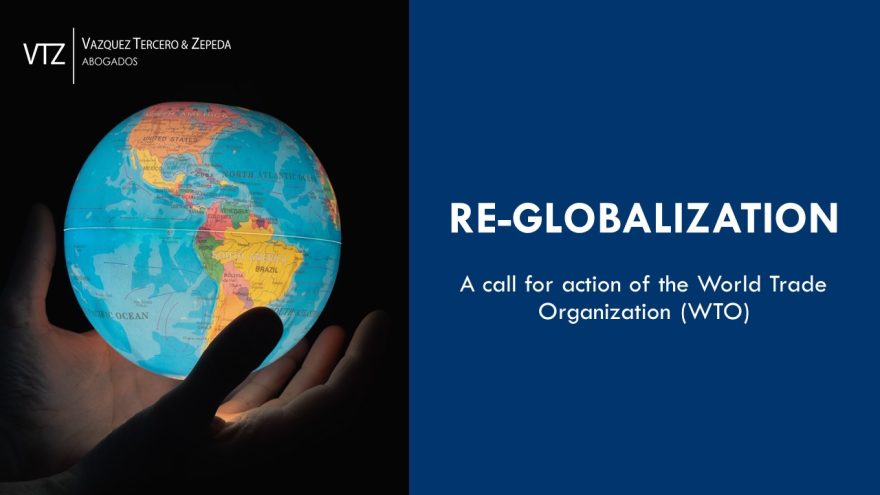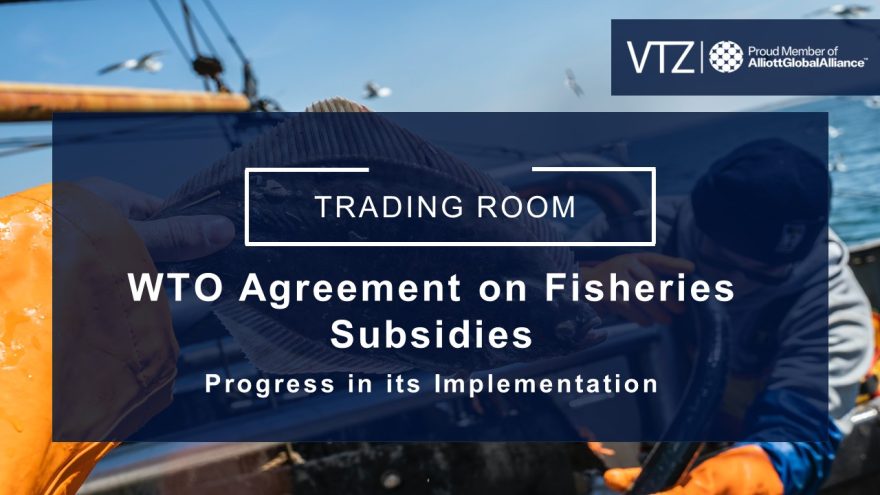Re-Globalization of International Trade
Navigating through the international landscape is becoming increasingly complex. In particular, the world has undergone significant changes in recent decades, largely due to the fragmentation of global supply chains. The interconnection between economies around the world has created both unique opportunities and challenges for international trade. However, political tensions have led to fragmentation in the rules, institutions, and overall landscape of international cooperation. In this article, we will explore the growing fragmentation of international trade and the efforts of the World Trade Organization (WTO) to promote institutional re-globalization and enhance international trade.
The Crisis of Globalization
Globalization refers to the integration of economies worldwide through trade. This global integration has facilitated significant economic progress. One of its key implications is the interconnection of world trade integration and the disintegration of production. This implies the growing integration of global markets, driven by the expansion of global value chains. Within these chains, companies can source raw materials from one country, process them in others, and sell the finished products in markets across various countries.
Consequently, the traditional need to obtain raw materials, manufacture goods, and sell products within a single country has been transcended. This transformation has greatly eased the exchange of goods and services globally. In recent years, numerous institutions have identified a decline in confidence and performance in international trade linked to globalization. Escalating trade tensions, global price fluctuations, and rising levels of inflation have resulted in disruptions within global production chains.
Regionalization as a response to the crisis of Globalization
Derived from the challenges posed by global value chains, companies are increasingly inclined to ensure proximity in their supply of raw materials, production processes, and final markets. Consequently, economic alliances have given rise to a growing number of regional agreements and heightened interest in nearshoring.
A prime illustration of this trend is the consolidation of the United States-Mexico-Canada Agreement (USMCA) and the Comprehensive and Progressive Agreement for Trans-Pacific Partnership (CPTPP), among other instruments. Moreover, there has been a notable uptick in the relocation efforts of numerous companies.

As a result, discussions about the «fragmentation» or «regionalization» of global trade are on the rise. Regionalization entails the coexistence of multiple commercial and legal systems within the same space and time. This implies that both international trade and international trade law do not always constitute a coherent and uniform system. Instead, they now comprise a variety of agreements, principles, and decisions from various international bodies and jurisdictions.
Regionalization has several dimensions. Economically, it implies the formation of commercial alliances between countries or companies with shared characteristics. This leads to a significant increase in the exchange of goods and services between two or more countries. Legally, it refers to the members of these alliances creating rules, processes, and commitments to provide a structure for their increased trade.
Effects in Trade
Regarding the trade implications of the regionalization of global trade, we observe a growing number of trading blocs, reduced opportunities to access other markets, and a decline in the flow of goods and services worldwide.
Trade Blocs
The primary point to note is the proliferation of trade blocs worldwide. There is a visible rise in partnerships between countries from diverse regions, aimed at enhancing and expanding trade in goods and services amongst themselves. Some notable examples include the European Union, Mercosur, the Caribbean Community, the Shanghai Cooperation Organization, and the USMCA.
Fewer opportunities for Competition
The second aspect of regionalization involves allied countries granting themselves «special» benefits that are not extended to the broader international community. For instance, Mexico permits goods originating in the United States and Canada to enter its territory with reduced or no import duties. Conversely, goods from countries like China, Brazil, India, and others are subject to these tariffs. Consequently, products from countries without a Free Trade Agreement (FTA) with Mexico enter the Mexican market at a higher price compared to those from Mexico’s trade partners.
Another example is the recent subsidy program initiated by the United States to incentivize the purchase of electric cars within its borders. This program is set to facilitate the purchase of thousands of electric cars within the United States. However, a condition for this subsidy is that the vehicles must be assembled within the territories of U.S. trading partners, explicitly excluding those manufactured with raw materials from China. This implies that electric cars assembled in Mexico and Canada will qualify for this subsidy.
Trade Flows
The third point underscores how trade patterns are influenced by cooperation among trading partners. Data from the WTO reveals that countries within economic blocs predominantly export and import goods with other commercial partners. Consequently, there is a reduced focus on exploring markets in countries outside these blocs.

For instance, the WTO stated that a significant 80.7% of all Mexico’s exports were directed to the United States and Canada. Additionally, 43.7% of Mexico’s imports originated from the United States. Similarly, 33.3% of U.S. exports were destined for Mexico and Canada, with 25.6% of its imports sourced from these countries.
Institutional Effects
Since 2020, the significance of the WTO has been diminishing. The institutional crisis within the Dispute Settlement Body and the absence of a concrete proposal to address it have led countries to enhance their trade relationships beyond the scope of the WTO. We observe an increasing number of regional Free Trade Agreements being established and the creation of new Free Trade Areas.
Discussions regarding progress, setbacks, and vital trade-related proposals are taking place in regional forums rather than at the World Trade Organization. Additionally, several emerging disputes are being settled in forums of other FTAs. For instance, the dairy dispute between New Zealand and Canada was handled within the institutional framework of CPTPP instead of being resolved at the WTO.
WTO Proposal
To address the implications of global trade regionalization, the WTO advocates for a re-globalization approach. This strategy aims to acknowledge global challenges and propose corresponding solutions. By reforming the international trading system, trade barriers are significantly lowered, particularly for developing countries that have been on the fringes of the system.
According to WTO Director-General Ngozi Okonjo-Iweala, re-globalization involves broadening supply chains and trade flows to encompass developing countries and small enterprises. One of the primary goals of re-globalization is to ensure compliance with safe, inclusive, and sustainable trade practices. Recently, the WTO released the World Trade Report 2023, which extensively discusses counterproposals to combat fragmentation.
Conclusion
In conclusion, the fragmentation of international trade is an undeniable reality in our interconnected world. While globalization has ushered in opportunities, it has also brought about challenges. Trade tensions, global price fluctuations, and disruptions in supply chains have introduced uncertainty into this interdependent global scenario. The response to this crisis has been regionalization, evident through the formation of trade blocs and a heightened interest in nearshoring.
To counter this, the WTO proposes a re-globalization that aims to diminish trade barriers, incorporate developing countries, and advocate for inclusive and sustainable trade. However, achieving this transformation necessitates global cooperation and a collective commitment to adapt trade institutions and regulations to evolving realities, addressing the hurdles posed by international trade fragmentation. Undoubtedly, we must await the outcomes of this initiative aimed at fortifying the WTO amid this intricate panorama.
Need more information?
VTZ is a firm specialized in International Trade and Customs with extensive experience advising companies in international trade and import procedures in Mexico.

Adrián Vázquez
Managing Partner

Emilio Arteaga
Jr. Partner

Gilberto Mejía
Associate

Patricia García
Associate








